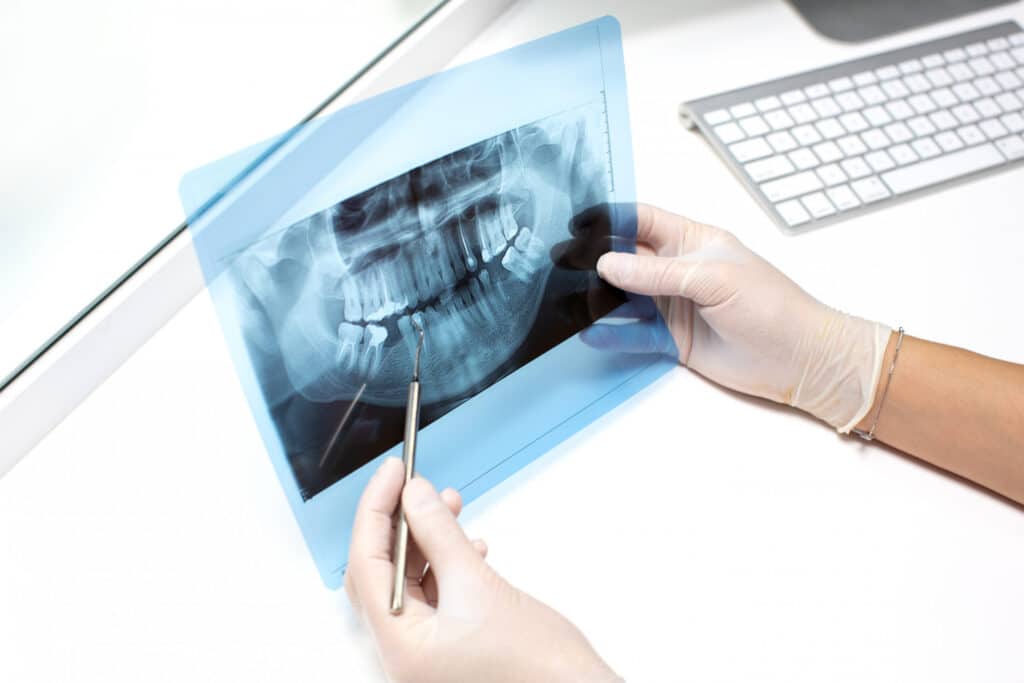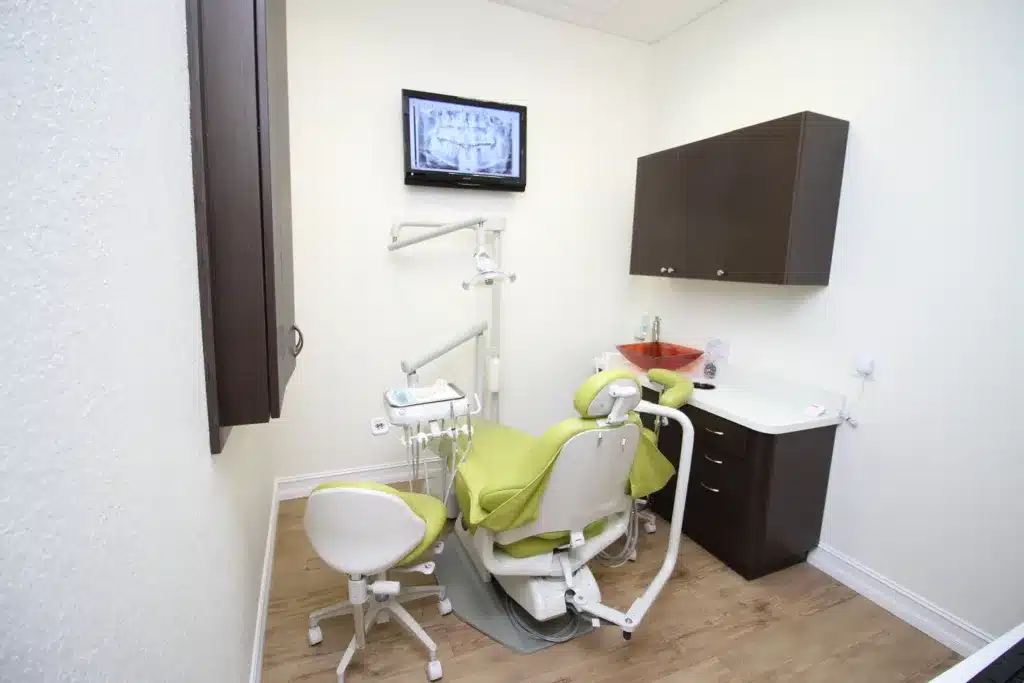Dental Crowns: Their Essential Role in Restoring Your Teeth
A dental crown, a tooth-shaped cap, is a restorative dental treatment designed to cover or encase a damaged or weakened tooth.
At Legacy Dental, we specialize in creating custom dental crowns tailored to fit securely over the entire visible portion of a tooth. This not only provides strength and protection but also enhances the aesthetic appeal of your smile.
Dental crowns play a pivotal role in oral health, restoring teeth that have undergone significant decay, damage, or trauma. They also provide reinforcement to teeth weakened after root canal therapy or serve as anchors for dental bridges.
With a variety of materials available, our crowns blend seamlessly with your natural teeth, ensuring both functionality and appearance are maintained or improved.

When and Why You Might Need a Dental Crown: Discussing Common Scenarios
Crowns are recommended in a range of situations to restore the strength, functionality, and appearance of your teeth. Here are some common scenarios where dental crowns prove indispensable:
Extensive Tooth Decay
When a tooth is extensively decayed and cannot be effectively restored with a simple filling, a crown becomes necessary. This often involves removing the decayed portion of the tooth and shaping it to fit the crown properly.
The crown, typically made from materials like porcelain, ceramic, or metal, restores the tooth’s structure and strength, allowing it to function normally.
Additionally, it provides a protective barrier to prevent further deterioration and potential complications, such as infection or tooth loss. The process ensures the longevity of the tooth and maintains overall oral health.
Cracked or Fractured Teeth
If a tooth is cracked or fractured due to trauma or injury, a crown can restore its integrity and prevent further damage. It acts as a protective shell, maintaining the tooth’s structure and functionality.
By completely encasing the damaged tooth, a crown not only enhances its strength but also improves its appearance, matching the color and shape of your natural teeth. This comprehensive protection helps ensure the longevity and health of your smile, allowing you to bite, chew, and speak with confidence.
Post-Root Canal Therapy
After root canal therapy, a tooth can become weakened and more susceptible to fractures due to the removal of infected tissue and nerves. This process often leaves the tooth hollow and brittle.
A crown provides the necessary reinforcement, covering the entire tooth to restore its strength and functionality. Additionally, a crown seals the treated tooth against bacteria and infection, preventing future complications and ensuring the long-term health of the tooth.
Cosmetic Enhancements
Crowns are also used for cosmetic purposes, improving the appearance of discolored, misshapen, or otherwise aesthetically compromised teeth. By covering these imperfections, crowns help create a more uniform and attractive smile.
Additionally, they can restore the natural look and function of a tooth that has been damaged by decay or injury. Crowns are custom-made to match the color, size, and shape of your existing teeth, ensuring a seamless and natural-looking result. They not only enhance aesthetics but also contribute to overall dental health by providing strength and support to weakened teeth.
Supporting Dental Bridges
Crowns often anchor dental bridges, which replace missing teeth by bridging the gap between adjacent teeth. These crowns are custom-made to fit perfectly over the adjacent teeth, providing a strong foundation for the bridge.
Dental bridges not only restore function, enabling you to chew and speak more effectively, but also improve the overall appearance of your smile by blending seamlessly with your natural teeth.
Additionally, dental bridges can prevent the remaining teeth from shifting out of position, maintaining the alignment and health of your entire mouth.

Types of Dental Crowns: Exploring Materials and Their Benefits
Dental crowns can be made from various materials, each offering unique benefits. Understanding these materials can help you make the best choice for your dental health needs.
Zirconia Crowns
- Durability: Extremely strong and capable of withstanding great bite force, ensuring long-term reliability even under heavy use. Perfect for those who need a robust dental solution.
- Aesthetic: Offers a natural look, seamlessly blending with existing teeth. Suitable for all teeth, providing a uniform and appealing appearance.
- Recommendation: Ideal for patients needing a durable and aesthetic solution for any tooth, especially those who prioritize both functionality and visual appeal in their dental care.
E-max Crowns
- Aesthetic: Known for the most natural appearance, these are ideal for visible front teeth where aesthetics are crucial. Their lifelike translucency and color closely mimic natural teeth, making them a popular choice for a flawless smile.
- Strength: While not as strong as zirconia, these materials provide sufficient durability for cosmetic cases. They can withstand the normal pressures of chewing and biting, though they may not be suitable for high-stress areas.
- Recommendation: These are best for cosmetically demanding scenarios where appearance is a top priority. They are particularly recommended for patients seeking a seamless blend with their natural teeth, ensuring a beautiful and confident smile.
Gold Crowns
- Durability: This material is highly durable and known for its long lifespan, making it a reliable choice for dental restorations that need to withstand significant wear and tear.
- Preparation: The procedure involves removing minimal tooth structure, which helps preserve more of the natural tooth and ensures better long-term health.
- Recommendation: This option is particularly suitable for patients who prioritize durability over aesthetics. It is especially recommended for molars, which require strong and resilient restorations to handle the forces of chewing.
PFM (Porcelain-Fused-to-Metal) Crowns
- Strength: These crowns are notably strong due to their metal substructure, which provides excellent durability and resistance to fractures.
- Aesthetic: They are less aesthetically pleasing compared to all-ceramic options, as the metal base can sometimes cause a slight grayish tint near the gum line.
- Recommendation: These crowns are ideal for situations requiring additional strength, such as back molars where chewing forces are greatest. They are recommended when aesthetics are a secondary concern and durability is the priority.
The Process of the Dental Crown Procedure: From Consultation to Fitting
Understanding the process of getting a dental crown can alleviate any concerns and ensure you feel prepared. Here’s a step-by-step guide:
Initial Consultation
During your first visit, our skilled dentist will evaluate your dental needs and determine if a crown is the best solution. This includes discussing the different types of crowns and selecting the most suitable material for your case.
Tooth Preparation
Once a crown is deemed necessary, the affected tooth is prepared by removing any decay and shaping it to fit the crown. This might involve reshaping the tooth’s sides and top to ensure a proper fit.
Dental Impressions
After preparation, an impression of your tooth is taken to create a precise model. This model is used to fabricate a custom crown that fits perfectly over the prepared tooth.
Temporary Crown
While your permanent crown is being fabricated, a temporary crown is placed to protect the prepared tooth. This ensures that you can continue to use the tooth while waiting for your final crown.
Crown Fitting and Adjustment
Once the custom crown is ready, you’ll return to our office for fitting. The dentist will place the crown over your tooth and make any necessary adjustments to ensure a perfect fit and comfortable bite.
Final Placement
After removing the temporary crown and making the necessary adjustments, the crown is permanently cemented into place using a strong dental adhesive.
The dentist will then make any final tweaks, such as smoothing the edges or adjusting the height, to ensure that it fits perfectly with your other teeth. They will also check and ensure that your bite feels natural and comfortable, making sure there is no discomfort when you chew or speak.
Finally, the dentist will provide you with care instructions to maintain the crown and keep your dental health in top condition.

The Long-term Benefits of Dental Crowns for Oral Health
Dental crowns offer numerous long-term benefits, making them an essential treatment for maintaining and enhancing oral health. Here are some key advantages:
Protection and Strength
Crowns protect weakened teeth from further damage and breakage, allowing you to maintain the functionality of your natural teeth. They are custom-made caps that fit over the damaged tooth, providing structural support and enhancing the tooth’s appearance.
By opting for a crown, you can prevent additional dental issues and preserve your smile for years to come.
Durability
Made from durable materials like porcelain or metal, dental crowns can last many years with proper care, such as regular brushing, flossing, and dental check-ups. These crowns provide a long-term solution for damaged teeth, restoring both function and appearance while helping to prevent further dental issues.
Aesthetic Improvement
Custom-made to match the color and shape of your natural teeth, crowns enhance the overall appearance of your smile, boosting your confidence. These dental restorations are meticulously crafted to blend seamlessly with your existing teeth, ensuring a natural and aesthetic look.
By covering damaged or discolored teeth, crowns not only improve the functionality of your bite but also contribute to a healthier, more attractive smile that you can be proud of.
Functionality
By restoring the structure of damaged teeth, crowns enable you to chew and speak properly, improving your overall quality of life. These dental restorations are custom-made to fit perfectly over your existing teeth, providing both strength and a natural appearance.
In addition to functional benefits, crowns can also enhance your smile’s aesthetics, giving you more confidence in social and professional settings.
Prevention of Further Issues
By covering and protecting compromised teeth, crowns help prevent more extensive dental issues that might require even more complex treatments. These dental caps are custom-made to fit over your damaged tooth, restoring its shape, size, strength, and appearance.
Crowns not only enhance the aesthetic appeal of your smile but also provide important structural support, ensuring that you can chew and speak comfortably.
How Long Do Dental Crowns Last?
The longevity of dental crowns depends on several factors, including the material used, the location of the crown in your mouth, and how well you care for it.
On average, dental crowns can last between 5 to 15 years, but with excellent oral hygiene and regular dental check-ups, they can last even longer.
Porcelain-fused-to-metal crowns tend to last around 10 to 15 years, while all-ceramic and all-porcelain crowns generally have a lifespan of around 10 to 20 years.
Gold crowns, known for their durability, can sometimes last a lifetime.
Proper care, such as avoiding hard foods, not using your teeth as tools, and maintaining a good oral hygiene routine, can significantly contribute to the extended lifespan of your dental crowns.
Regular dental visits are also crucial to monitor the condition of the crown and the surrounding teeth and gums, ensuring any potential issues are addressed promptly.
Conclusion and Call to Action
Dental crowns play an essential role in restoring and protecting your teeth, offering both functional and aesthetic benefits.
If you believe you might benefit from crown services, don’t hesitate to schedule a consultation with us at Legacy Dental Team.
Our experienced and skilled team will assess your dental needs and recommend the most appropriate treatment options to restore and enhance your smile.
Contact Legacy Dental today to start your journey towards a healthier, more beautiful smile.
Prioritize your dental health and discover the life-changing benefits of custom dental crowns!



